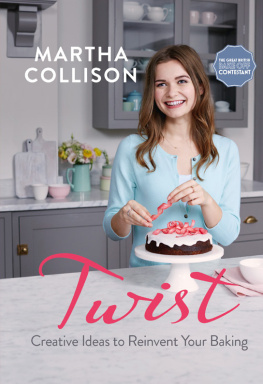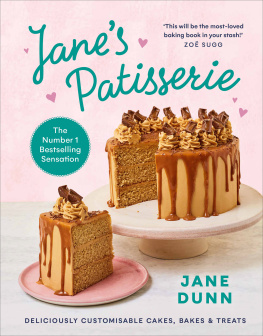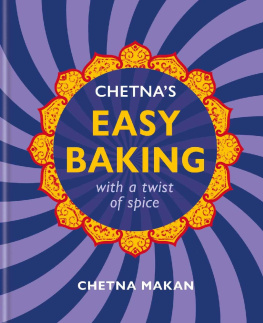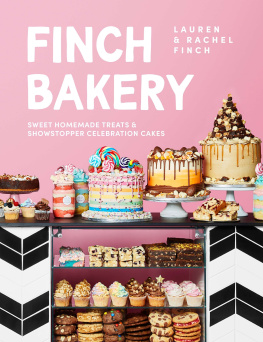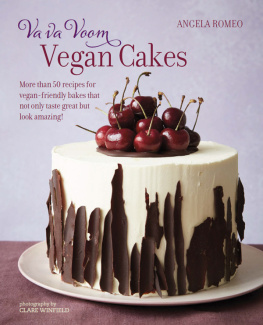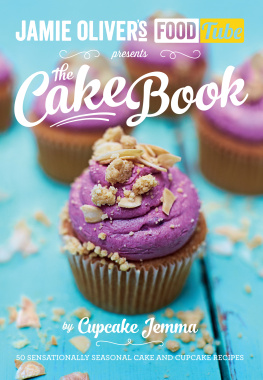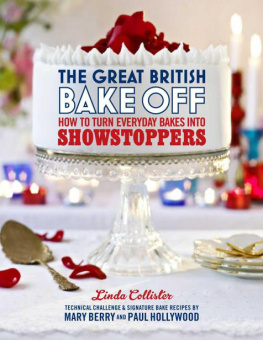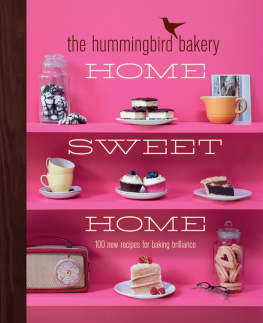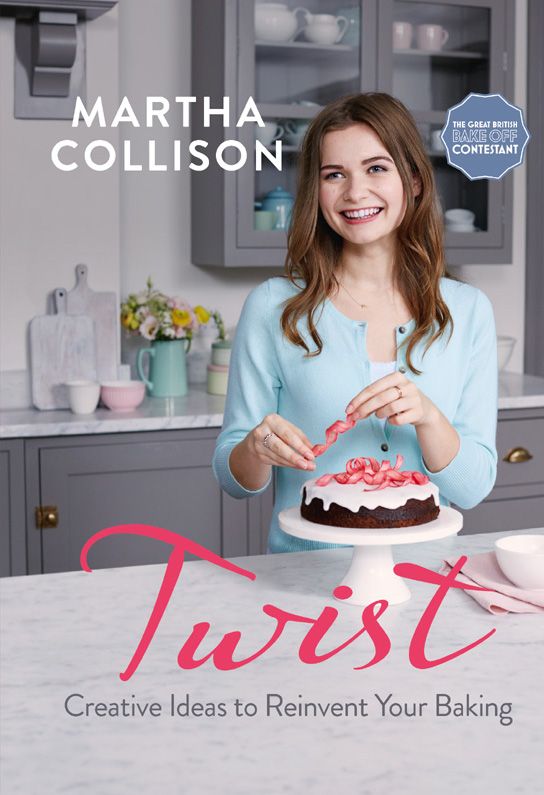For Mum, Dad and Hannah


CONTENTS
When I was eight years old, I was given my first recipe book as a Christmas present.
Inspired by the big, child-friendly pictures, I pulled out my step-stool and got my hands straight into my first ever bake: rock cakes. As I pulled the dense, slightly charred lumps from the oven, my family smiled doubtfully then politely gulped down the dry crumbs, hoping that baking would be just another childish phase.
However, as time went on, batch after batch of different rock cakes would come out of our old, unpredictable oven. Id mix in whatever I could find, from chocolate buttons to pink sprinkles to dried fruit. Every recipe was an adventure and I fell in love with baking.
I approached recipes as something to inspire new creations rather than as a set of rules to be followed; they were beginnings rather than endings. I wanted to understand how a recipe worked, what to do when it went wrong, and what roles different ingredients have to play. Understanding the science behind baking, along with my curiosity, has given me the confidence and freedom to bake anything. Being part of series 5 of The Great British Bake Off required all of that confidence, and through the recipe development and competition stages I learnt a huge amount about designing and creating exciting bakes. Appearing on the show threw me headfirst into the world of food writing and experimental baking, and I have enjoyed it so much I hope I never have to leave!


And, although Ive come a long way from basic rock cakes, teaching myself all manner of baking techniques over the last ten years, the essence of my baking is the same: I still approach recipes with the same curiosity. This book contains the results of that curiosity; it features many of my favourite recipes, along with unique twists and variations for you to try. The recipes have short twists; others are full-length ones. And there are also some twists on classic bakes.
Ive also included evolution diagrams of some key recipes, which guide you through how I choose and match complementary flavours in my baking and how it is possible to adapt and vary a basic recipe to make something completely different. Once youve mastered the basics and understand how the flavours work, whether for a sponge, pastry or meringue, you can create your very own twists the possibilities of what you can create are endless.
Whatever your ability and whether youve never baked or been baking for years, I want to show you how easy it is to produce modern, delicious bakes.


CAKE TINS
For round cakes, the tins I use most frequently are 18cm and 20cm. Avoid the shallow sandwich tins; you want loose-bottomed, deep tins for cakes that are easy to remove. Ideally, you want three tins in each size, but one tin will be enough if you bake the cakes in batches. I buy pre-cut circles of baking parchment because I really hate lining tins these make it a lot quicker and easier!
Other useful tins to have are a 20 x 30cm traybake or brownie tin, a 1-litre metal loaf tin and a circular bundt tin. You will also need a 12-hole muffin tin to make cupcakes. I tend not to use silicone bakeware because it is harder to work with and more difficult to remove cakes from. It can also change baking times, as silicone doesnt conduct heat in the same way as metal.
To make tarts I use a round 23cm tin with a removable base. You could invest in mini tartlet tins to make smaller tarts, if you like.
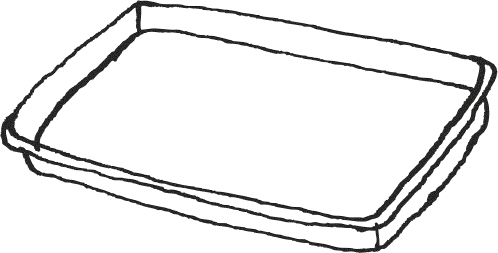
BAKING TRAYS
I normally line mine with a reusable non-stick baking sheet to reduce waste. If you dont have one, baking parchment will work just as well.

MIXING BOWLS
Glass, ceramic and metal bowls are superior to plastic, as plastic bowls can sometimes retain a film of fat, even after washing. They are heatproof and dishwasher-safe, making them a great choice for baking. Go for a range of sizes they often fit inside each other for easy storage.
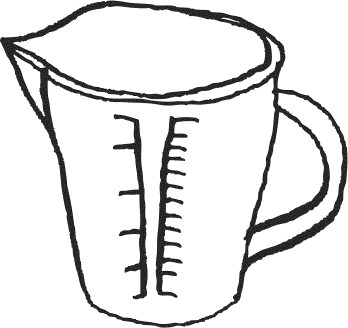
MEASURING JUG
I weigh a lot of liquids straight into the bowl for accuracy, but it is useful to be able to pour batters into pans or sauces over desserts, so Id recommend investing in one.
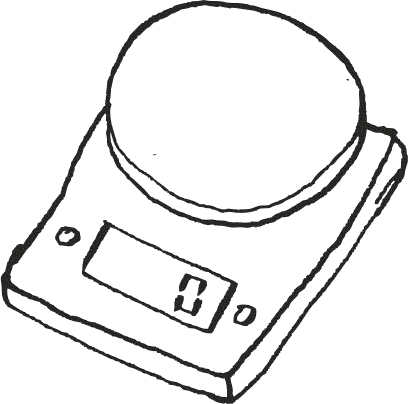
SCALES
A reliable pair of good-quality digital scales will completely change your life in baking. Baking is a science that requires accuracy to obtain fantastic results, so a bad set will limit you greatly. Invest in a reputable brand as they are less likely to go wrong and will last for a long time.
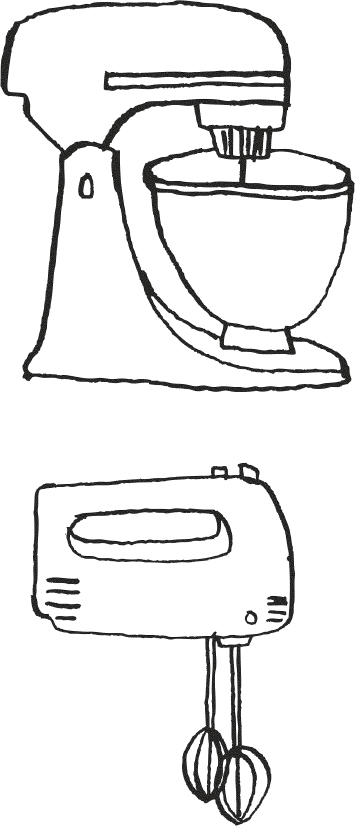
ELECTRIC HAND-HELD WHISK/STAND MIXER
If you are new to baking, Id really recommend purchasing an electric hand-held whisk. It will make cake-making so much quicker, and is necessary for some tasks like whipping egg whites. They arent too expensive online and are essential if you want to progress in baking. If you bake a lot, a stand mixer such as a KitchenAid or Kenwood kMix will revolutionise the way you bake. Everything becomes super-fast; I use mine most days. They are costly, but I dont regret it for a minute.
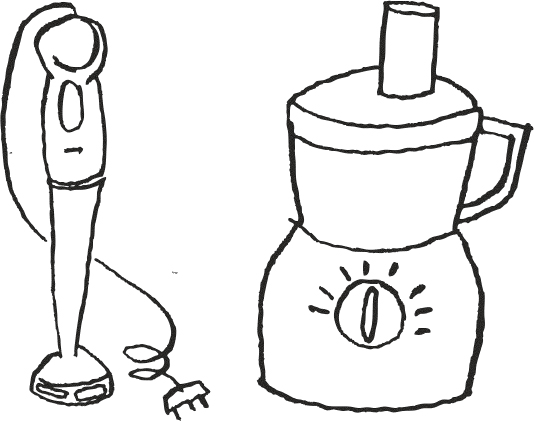
FOOD PROCESSOR OR STICK BLENDER
A food processor is a great thing to own for ease, and I find it most useful for making pastry quickly. A stick blender is a cheaper alternative great for pureing fruits and crushing nuts in the blender attachment many brands now include.
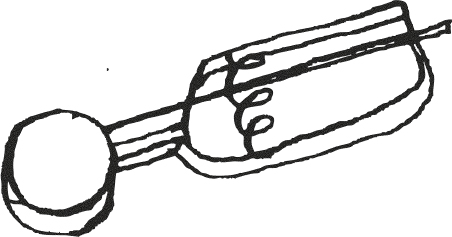
ICE-CREAM SCOOP
I use ice-cream scoops for so much more than scooping ice-cream. In fact, it is probably one of my most used pieces of kitchen equipment. I have 3 sizes, and they are ideal for baking even-sized cupcakes, perfectly circular cookies and even distributing batters between cake tins.

